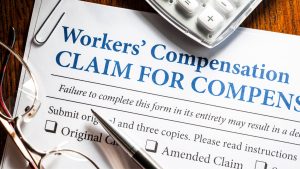
If your workers’ compensation claim has been denied in Minnesota, you’re probably feeling frustrated and uncertain about your next steps. Workers’ compensation is designed to provide financial support for employees who are injured at work, but sometimes claims are denied for various reasons. Understanding why your claim was denied and knowing the steps to take can help you secure the benefits you deserve.
Understanding Why Your Claim Was Denied
Before taking action, it’s crucial to understand the reasons behind the denial. Common reasons for a denied claim include:
- Insufficient Evidence: Lack of medical documentation or proof that the injury is work-related.
- Missed Deadlines: Filing the claim after the deadline has passed.
- Non-Compensable Injury: The injury is not covered under workers’ compensation laws.
- Disputes Over Injury: The employer or insurance company disputes the claim, alleging the injury did not occur at work or is not as severe as claimed.
Knowing the specific reason for your denial will guide you in addressing the issue effectively.
Steps to Take After a Denied Claim
1. Review the Denial Letter
The first step is to carefully review the denial letter from the workers’ compensation insurance company. The letter will outline the reasons for denial and provide information on how to appeal the decision. Pay close attention to any deadlines for filing an appeal.
2. Contact Your Employer
Reach out to your employer to discuss the denial. Sometimes, misunderstandings or missing paperwork can be easily resolved. Your employer may be able to provide additional information or documentation to support your claim.
3. Gather Additional Evidence
If your claim was denied due to insufficient evidence, gather any additional documentation that supports your case. This may include:
- Medical records and reports from your doctor
- Witness statements from coworkers
- Accident reports or incident logs
The more evidence you have, the stronger your case will be.
4. File an Appeal
If you believe your claim was wrongly denied, you have the right to file an appeal. In Minnesota, the process involves several steps:
Filing a Claim Petition
To initiate the appeal process, you must file a Claim Petition with the Minnesota Office of Administrative Hearings (OAH). The Claim Petition should detail the nature of your injury, the circumstances surrounding the injury, and why you believe your claim should be approved.
Mediation Session
After filing the Claim Petition, you may be required to attend a mediation session. Mediation is a voluntary process where both parties try to reach a settlement with the help of a neutral mediator. If mediation is successful, you may receive the benefits you are entitled to without further legal action.
Administrative Conference or Hearing
If mediation is unsuccessful, your case will proceed to an administrative conference or hearing. An administrative law judge will hear both sides of the case and make a determination. Be prepared to present all relevant evidence and possibly testify about the circumstances of your injury.
5. Consult an Attorney
Navigating the appeals process can be complex and overwhelming. Consider consulting with an experienced workers’ compensation attorney who can provide legal advice and represent you throughout the process. An attorney can help you:
- Understand your rights and options
- Gather and present evidence
- Negotiate with the insurance company
- Represent you in hearings and conferences
Common Mistakes to Avoid
Missing Deadlines
Deadlines are critical in the workers’ compensation process. Missing a deadline can result in your claim being permanently denied. Make sure to:
- File your initial claim promptly
- Submit all required documentation on time
- Adhere to deadlines for appeals and hearings
Inadequate Documentation
Providing insufficient or incomplete documentation is a common reason for claim denial. Ensure you have comprehensive medical records, witness statements, and any other relevant evidence to support your claim.
Not Seeking Legal Advice
Attempting to handle a denied claim on your own can be challenging. An attorney with experience in Minnesota workers’ compensation law can significantly increase your chances of a successful appeal.
How to Prevent Claim Denials
Report Injuries Immediately
Report any work-related injuries to your employer as soon as they occur. Prompt reporting helps establish a clear connection between the injury and your job.
Follow Medical Advice
Follow your doctor’s recommendations and attend all medical appointments. Consistent medical treatment and documentation are crucial in supporting your claim.
Keep Detailed Records
Maintain detailed records of your injury, treatment, and any correspondence with your employer and the insurance company. Accurate records can be invaluable if you need to appeal a denied claim.
Conclusion
Dealing with a denied workers’ compensation claim in Minnesota can be stressful, but understanding the reasons for denial and knowing the steps to take can help you navigate the process. By gathering additional evidence, filing an appeal, and consulting an attorney, you can improve your chances of securing the benefits you deserve. Remember to report injuries promptly, follow medical advice, and keep detailed records to prevent future claim denials.
If your workers’ compensation claim has been denied, don’t give up. Take action to protect your rights and get the support you need during your recovery.
Take the Next Step with 612-Injured
If your workers’ compensation claim has been denied, it’s crucial to act quickly to protect your rights. Contact 612-Injured, Minnesota’s Top Workers Compensation Attorneys, for expert guidance and support. Our team is dedicated to helping you navigate the complexities of your case, ensuring that you receive the benefits you deserve. Don’t hesitate—reach out to us today and let us help you secure the compensation you’re entitled to during your recovery. Your path to justice starts here!


